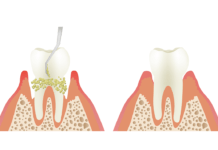You can see it. You can almost feel it. Your dream job in your dream location just posted online, just waiting for you to grab it. Unfortunately, landing your ideal hygiene position can be a competitive endeavor. If a job is worthy of your daydreams, chances are other talented hygienists think it is worthy of theirs too.
As with just about everything, job-seeking and hiring processes are evolving fast. One-click employment applications, video interviews, and automated candidate tracking systems have made applying for positions more convenient. However, it can be challenging to feel seen by employers as technologies change at breakneck speed.
I would know. For the last four years, I have been a dental hygiene recruiter for a large dental group. As a hygienist by training, I have experienced the job-seeking process from both sides of the interview table.
Whether your goal is to land your clinical or nonclinical dream job, my aim here is to help you cut through the noise and remind you not to underestimate the value of the little things. The good news is that, despite all the hype, a huge part of getting your ideal position depends on following the old truisms.
If It Isn’t Broken, Don’t Fix It
With all of the online advice you have at your fingertips, it is easy to get lost in the information and complicate your job-hunting efforts. Certain practices stand the test of time for a reason − they never cease to work. The old school recommendation of being punctual, reliable, and flexible during the interview and hiring process will always apply.
Whether your interview takes place on the phone, via video conference, or in-person, there is no substitute for showing up on time, researching the employer beforehand, and following up afterward with a quick email or text to thank the interviewer. As a recruiter, I notice and greatly appreciate these efforts.
Be a Real Live Person, Not a Ghost
“Ghosting” is defined as “the practice of ending a personal relationship with someone by suddenly and without explanation withdrawing from all communication.”1
I get it, and I’ve been there. Sometimes you decide to decline an offer, discontinue an interview process, or change your mind about a position after you apply. While it is perfectly acceptable to go in a different direction, it is not professional to go dark on employers.
When you decide to not pursue a position, a quick text or voicemail to the person doing the hiring is all it takes to maintain professionalism and goodwill. Letting a hiring manager know you are no longer interested ensures that you and they can move on without confusion.
A quick “thank you for your time, but I am no longer interested in pursuing this position” is adequate and will always be appreciated.
Why is it so important to follow up? Join me, if you dare, for a nightmarish ghosting scenario: You decide after an interview with a practice manager that the role she is interviewing you for is not your cup of tea. Not wanting to hurt her feelings or go into an explanation, you decide not to return her calls and trust she will get the hint.
Three weeks later, your dream job opens at your dream practice. When you go for the in-person interview, you realize the hiring manager is the same person you ghosted a few weeks ago at the other practice. She was recently hired as the manager of your dream office. This sort of thing is not far-fetched, and it happens more often than you might think. It’s a small world, after all!
To improve their hiring processes, some employers may want to know why you decided not to accept a job offer. If you are comfortable, go ahead and be (gently) honest about why you are not interested. It can only help them improve and make things better for the next applicant.
However, you may simply not wish to disclose your reasons. You are never under any obligation to do so. If asked, you can always say, “I am going in another direction, but I wish you the best in your search.” Most employers will not push further.
It Really Does Take a Village
If I could give only one tip for landing your perfect job, it would be to start networking. Networking is just a fancy term for meeting new people who can be useful for your career prospects. I can’t stress enough the importance of knowing the right people at the right time.
Have you ever wondered what voodoo magic someone worked to get the job they have? Obvious factors such as skill and education aside, many people with top jobs often have a large network of industry peers that they regularly communicate with. All the skill in the world won’t get you hired if folks don’t know you exist.
Some job seekers falsely believe that networking is a time-consuming and cumbersome process that involves building deep relationships with people in their industry. While meaningful friendships certainly bring their own rewards, it isn’t even close to being necessary for the purpose of job seeking.
If frequent face-to-face social interaction seems daunting, you can meet new people online through social media sites and groups for hygienists and employers. Whole books have been written on mastering the art of networking, but it need not be complicated. When contacting someone on a professional networking site, let them know why you are contacting them. Inform them you are interested in their company and attach your resume.
To maximize the usefulness of your new connection, you should check in with the person from time to time to ensure they remember you. Messaging too frequently can be invasive of their time, so once every few months is enough. Remember, if you are connecting with someone in the hope she can help advance your career, be sure to return the favor by leaving her a positive recommendation on her LinkedIn profile or offer some other career-related support. Networking should be a two-way street, and you tend to get proportionate to what you give.
Do Your Time
When a person has a dreamy job, you can probably bet they weren’t always in such an enviable position.
While some folks step out of college into their ideal niche, most of us pay our dues, so to speak. We may need to sharpen our skills in less-than-perfect positions as we gain crucial experience, self-awareness, and business intelligence. I know very few folks in prominent positions who did not spend at least some time at the bottom, working their way up.
I am a hygienist and a talent acquisition partner, but I initially trained as a volunteer dental assistant to get my foot into the dental field. Put more simply, for a time at least, I worked for free. Looking back, those days were critical in shaping my eventual career path, and I’ve never regretted it.
Don’t Take It Personally
When you apply to a position and don’t get a response right away, it is natural to assume the employer isn’t interested in you. From my perspective, this isn’t usually the case. Hiring managers may not immediately respond for any number of reasons.
These reasons include working on other duties, being short-staffed, or having many applicants. Some employers will even post jobs simply to generate interest and leads for a hiring date far into the future. Do not always assume that you are somehow lacking if they don’t call right away.
Prior to my career as a recruiter, I would scratch my head and scour my resume for imperfections if I did not get that call immediately. Now that I am on the other side, I can clearly see that my resume was fine.
Learn from Your Mistakes
Sometimes, you are not getting called for job opportunities due to factors you can control. If you are experiencing a pattern of rejection, start with the obvious issues first. Proofread your resume for grammar and spelling. Ensure you have included references with good contact numbers. Punch up your resume with your headshot if you are comfortable with that.
When a manager has dozens of resumes, personalization and putting a face with a name helps. Even a colorful heading in lieu of a picture is refreshing.
Regardless of the outcome, every interview you do will give you valuable experience. I am aware of how trite that may sound, but it is true. The only way you get good at anything is to practice.
When I conduct interviews with hygienists, I have never had anyone “blow” an interview simply by being nervous. In fact, nerves indicate the candidate cares about making a good impression. I have, however, had hygienists that left a negative impression if they were apathetic or seemed uninterested in the position during the interview.
If you put your best foot forward, you will be fine. A good interviewer will be able to help put you at ease.
If you still are not getting offers, you might ask yourself the following questions:
- “Is my social media featuring me in the best light?” There is no guarantee that employers will not see your social media. In the world of work, your social media persona lets people know what kind of employee you might be.
- “Do I have too many positions in too little time on my resume?” Many jobs in a short time frame can be a red flag for employers. If you have had multiple temping jobs, you need not list them all. Rather, indicate how long you have been a temp, and include the names of your temp employers in your references if you wish. If you have moved around due to geographic reasons such as being transferred with a spouse/partner, you may wish to state that in your communications with the interviewer.
- “Am I communicating what I can bring to the job, vs. what the job can bring to me?” Remember, employers want to know how you can help them succeed. Quality employers want you to succeed as well, but it is a reciprocal relationship. Ensure employers know what you bring to the table that other candidates might not.
Build Bridges, Don’t Burn Them
Ambition is a good thing when channeled in a healthy manner. For obvious reasons, it is never a good idea to be dishonest, unethical, or intimidating to gain a position. This type of behavior may seem shrewd or clever, but it will ultimately bite you. Be kind to everyone you meet on the job-hunting trail. Warm smiles go further than sharp elbows.
At the end of the day, landing the job you want can be a process. But it needn’t be complicated or stressful. Sometimes the old standbys are all it takes – for example, treating others as you wish to be treated or presenting yourself as the talented professional you are.
Before you leave, check out the Today’s RDH self-study CE courses. All courses are peer-reviewed and non-sponsored to focus solely on high-quality education. Click here now.
Listen to the Today’s RDH Dental Hygiene Podcast Below:
Reference
- Ghosting. Wikipedia. Retrieved from https://en.wikipedia.org/wiki/Ghosting












